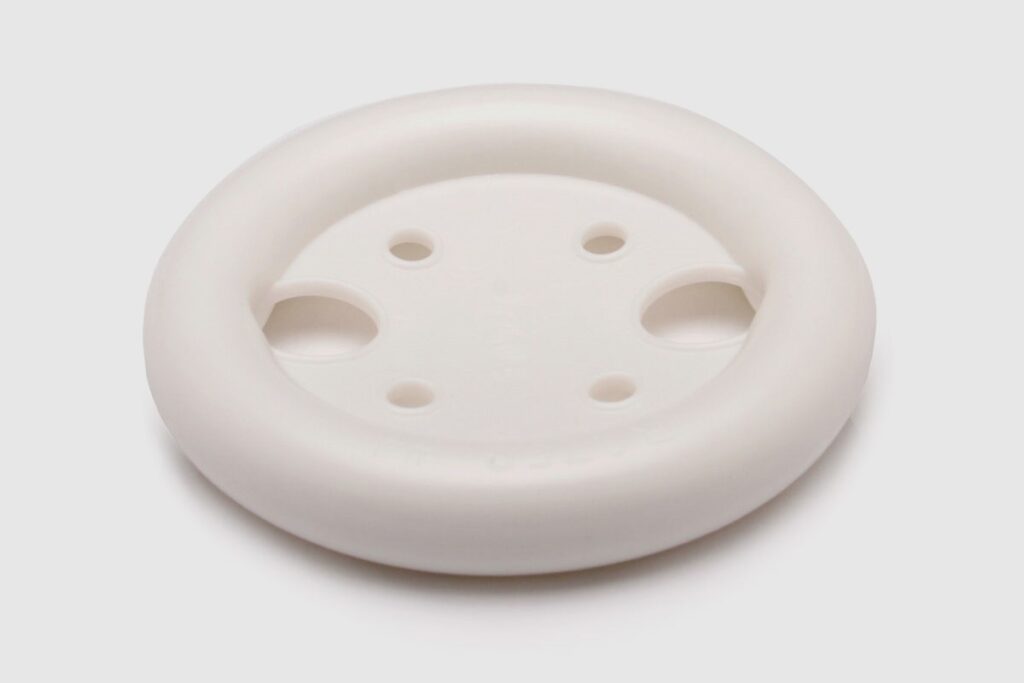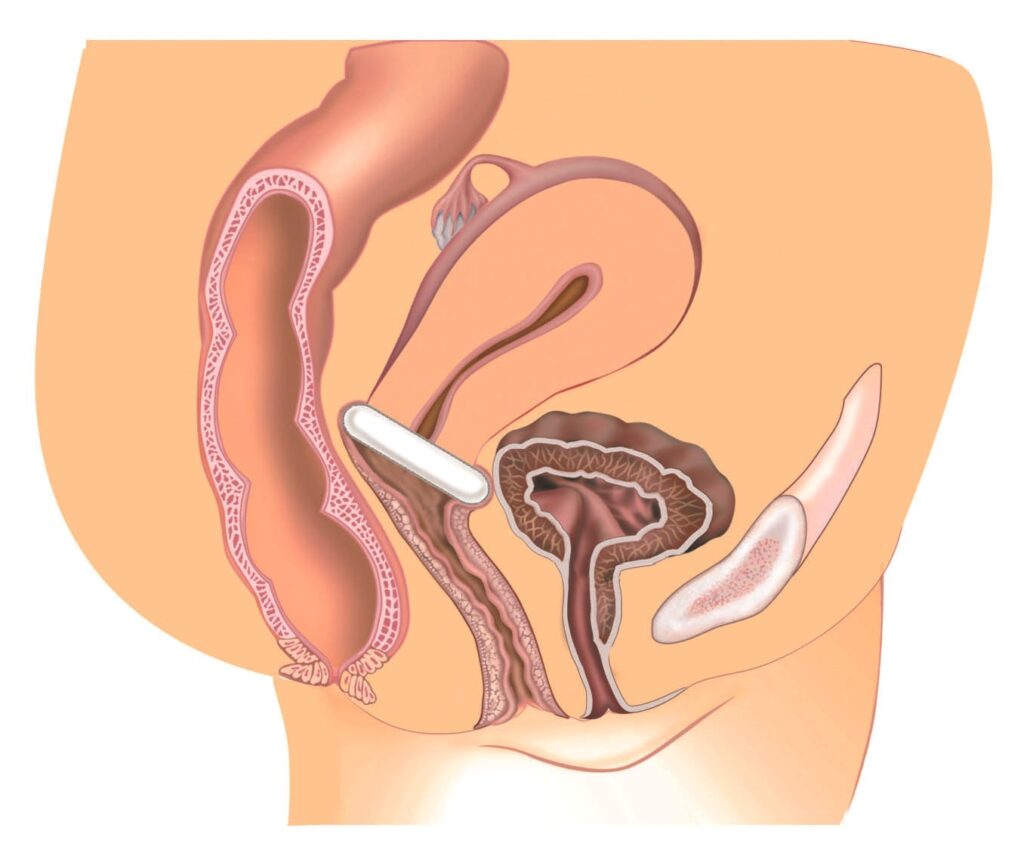Chronic constipation and frequent straining to have a bowel movement is a common complaint that…

Non-surgical approach to Pelvic Organ Prolapse
When you look at how to manage prolapse, one of the first things that you may hear from your doctor or find on the internet is surgery. But what if I told you that doesn’t need to be the first line of defense? Pessaries are a very successful and useful treatment for pelvic organ prolapse. Used in conjunction with pelvic floor physical therapy, bothersome symptoms from pelvic organ prolapse can be managed non-surgically.
First, what is a pessary? A pessary is a medical grade silicone that you or your provider insert into your vagina to help in supporting your pelvic organs when the pelvic floor muscles and supporting tissues are weakened. There are several types of pessaries available that your provider will help you fit the right type and size. Fitting is done after a vaginal pelvic floor assessment. After it is inserted, you will want to move around, sit, stand, cough, and do other activities that increase your prolapse symptoms. You will also want to practice taking it out and putting the pessary back in.

Prior to being fitted for a pessary, it is advised to work with a pelvic floor physical therapist to grade your prolapse, assess pelvic floor muscle strength and coordination, and look at toileting and lifting techniques that may be putting more pressure on your pelvic floor. We also want to look at the pelvic floor, abdominal wall, hip, and back muscles that may have trigger points that need to be released for the best support for the pelvic organs.
Pessaries are a good option to try if you are experiencing difficulty emptying your bladder, urinary leaking, frequency or urgency, pelvic heaviness or bulging, or bowel urgency or leaking. Working with a pelvic floor physical therapist along with using a pessary has the best results in relieving prolapse symptoms with long term results. While a pessary cannot completely correct fascial weakness that may occur with pelvic organ prolapse, correct use of a pessary with improved muscle strength and coordination and greatly reduce the bothersome symptoms and improve quality of life of women with prolapse.

If you are experiencing prolapse symptoms, please talk to a pelvic floor physical therapist prior to proceeding. Working with a pelvic floor PT and a pessary may be the treatment that works best for you without requiring a surgical fix. If you do need surgery, your pelvic floor PT can help you learn how to use your pelvic floor muscles and coordinate them with the rest of the core for the best long term surgical results. This will provide you with the strength and coordination so that you don’t damage the surgical site while lifting, exercising etc.
We offer pessary fittings and pelvic organ prolapse screening and management, and will provide you with a free, 15 minute phone consultation to answer questions and ensure you are in the right place to get well.



